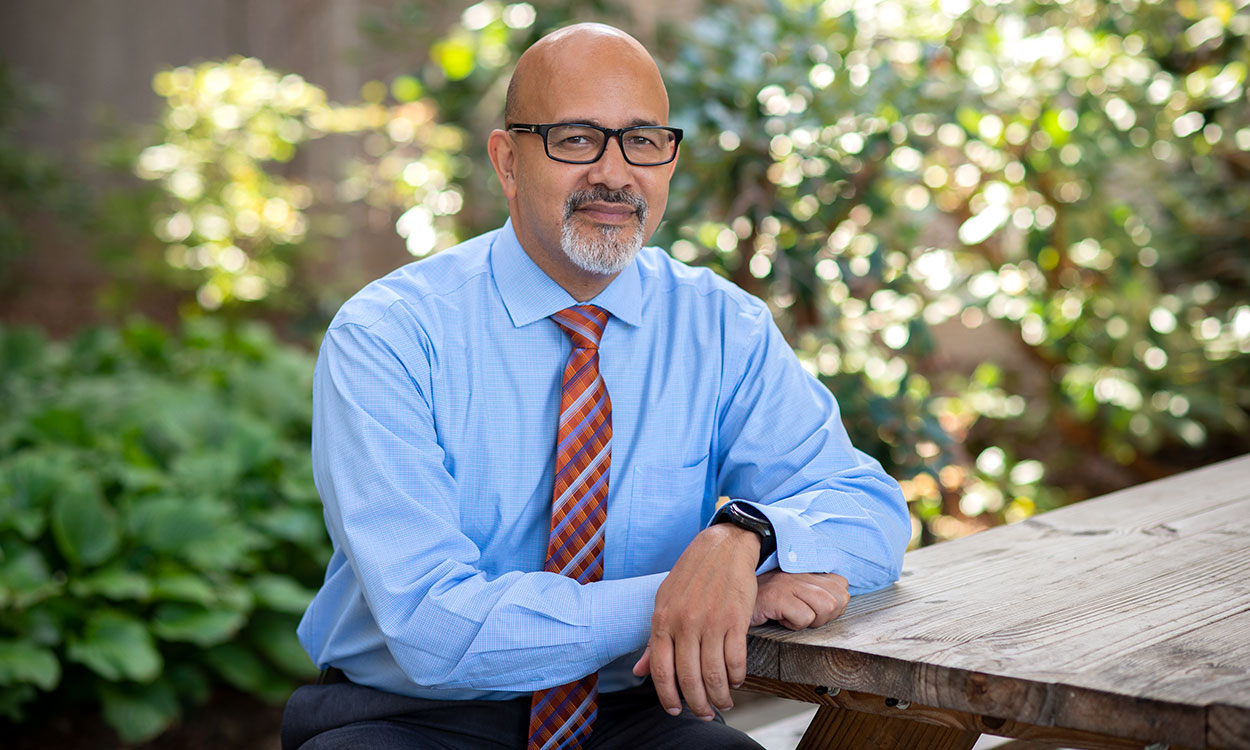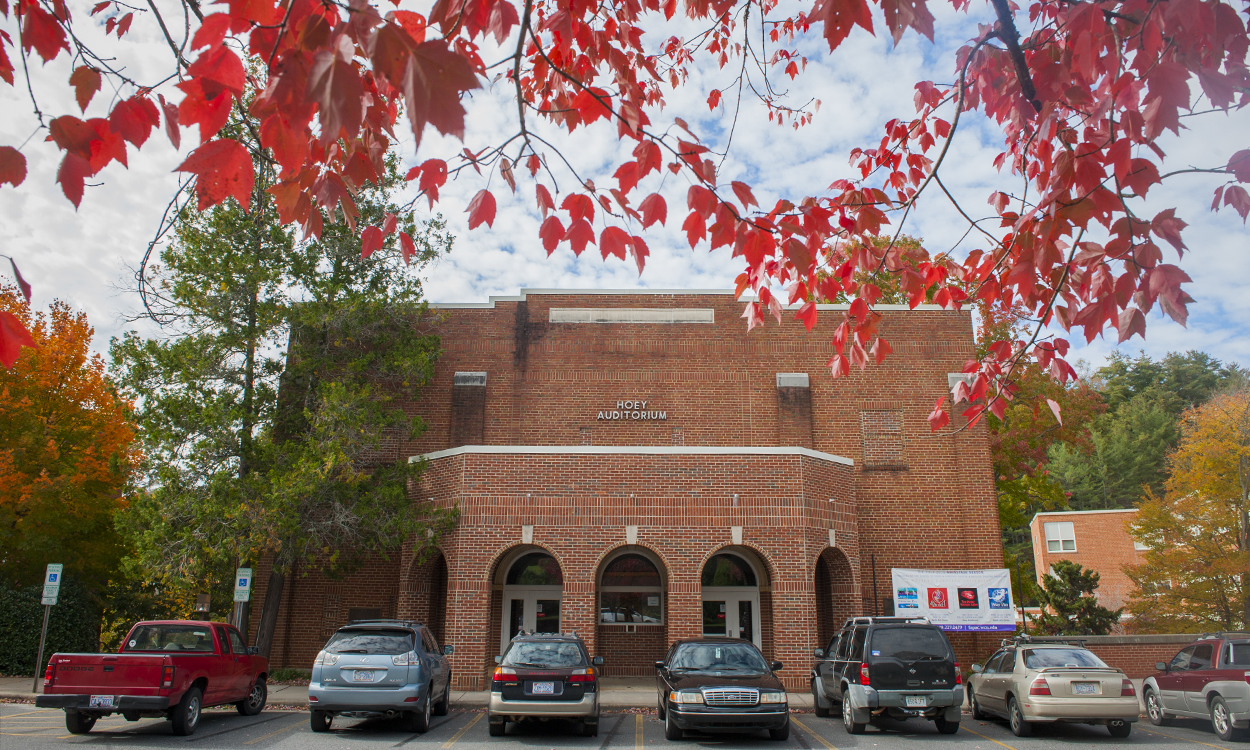Nazario-Colon’s passion leads to being named Gilbert-Chappell Distinguished Poet

Ricardo Nazario-Colón
Ricardo Nazario-Colón, Western Carolina University’s chief diversity officer, first caught the poetry bug as a youngster in Puerto Rico.
He would watch his mother, with the Victrola playing in the background, take a break from cleaning on the weekends to sit on the couch and read poetry. Nazario-Colón also had an uncle and a grandfather who were poets.
So, it’s no surprise that he would later discover his talents in the writing form. Those talents have led Nazario-Colón to recently being named as one of three Gilbert-Chappell Distinguished Poets by the North Carolina Poetry Society.
Nazario-Colón will represent 32 counties in the western region of the state. Between January and May of 2019, he will mentor four emerging poets, ideally one from middle school, high school, a college or university, and an adult in the region. In addition to serving as a mentor, he will conduct a reading with the poets at their home libraries. The poets will present their work at WCU’s Spring Literary Festival in April.
“It’s a huge task and honor to help other people shape their work, guide them, provide them with ways to improve their craft,” Nazario-Colón said. “It’s really an honor. I was excited. I am not someone who’s always seeking these kinds of accolades. I just like to write. I don’t submit for prizes. I don’t do competitions. I just like to write. For someone to think I could be a representative of the region, that I could represent the art form in its best light, it’s humbling.”
Nazario-Colón remembers writing poetry while in elementary school in Puerto Rico. During his time in the Marines, he wrote a poem about an ant crawling across the grass.
“Apparently, I sent it back in a letter to a family member and everybody was like, ‘That is such a great poem.’ But nobody kept the letter, so that poem is lost in time,” Nazario-Colón said.
It was while he was an undergraduate at the University of Kentucky in the late 1980s and early 1990s that he began to flourish as a writer. He was part of a group of faculty, staff and students that came together to form The Affrilachian Poets. They mentored and supported each other as they learned about poetry and writing.
“Affrilachia is a word that was created by Frank X Walker to recognize that there were people in the region of Appalachia who at the time did not meet the dictionary’s definition, which was white residents of the mountainous region. That was actually in one of the Webster’s dictionaries. He knew that was not accurate. Cherokee people have been in the region for generations and African-Americans have been in the region.”
Nazario-Colón said his biggest gratification as a poet came from writing his first book, “Of Jibaros and Hillbillies,” when his family read it and thanked him for telling their stories. The ultimate approval came from his mother.
“Some people worry that you’re telling your family’s business,” he said. “But my mother read my manuscript. I just happened to have it sitting down next to me on the sofa. She sat down and grabbed it and started reading it. All I kept hearing was this whisper as she was trying to read it quietly. She read it cover-to-cover, every single poem in the book.
“I couldn’t move. She finished and she closed it with that gentle, caressing hand, and then she said, ‘Did grandma say that?’ The opening poem was about something that my grandmother told me when I was young. And I said, ‘Yes.’ She kind of nodded and gave that uh-huh and walked away. I was like, ‘OK, I’m good to go. There are no objections.’ That was my stamp of approval that what I was doing was right, and that I wasn’t crossing any unspoken rule about talking about family.”
In addition to writing about his family, Nazario-Colón likes to write about places, loved ones and politics. He has written about the terrorist attack in Boston, and 9/11 because he was living in New York City at the time.
“I think one of the most important pieces for me is being able to tell stories,” he said. “We often write about what we know. That’s where we begin, and then we expand. Just being able to give voice to family stories and learning that these stories are similar to other people’s stories. When other people read my work, they have a story to tell that resonates with them. That, I think, is important because it closes the gap of humanity and it shows that we are very much alike in many ways. Our lives are not as different as we might think. I enjoy that a lot.”

